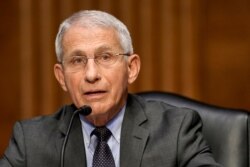COVAX, the international scheme for the equitable international distribution of COVID vaccines is running short of the shots. The shortfall is largely due to the Serum Institute of India which has not been able to meet its global commitments for the vaccine in several months due to an overwhelming domestic demand for the vaccine.
UNICEF buys and delivers the COVAX vaccines. Henrietta Fiore, the executive director of the United Nation’s children’s agency, called on countries to not only fulfill their financial commitments to COVAX, but also to share their excess doses which she said, in a statement, are “needed right now.”
Fiore said data analysis has revealed that G-7 countries and European Union members “could donate around 153 million vaccine doses if they shared just 20 percent of their available supply over June, July and August. Critically, they could do so while still meeting their commitments to vaccinate their own populations.”
The UNICEF chief said COVAX “will deliver its 65 millionth dose in the coming days. It should have been at least its 170 millionth. By the time G-7 leaders gather in the UK next month, and as a deadly second wave of COVID-19 will likely continue to sweep across India and many of its South Asian neighbors, the shortfall will near 190 million doses.
India is bracing for Cyclone Tauktae, expected to hit the country’s Western coast Monday evening. Thousands of people have been evacuated and COVID vaccination programs have closed down in some areas. India has reported hundreds of thousands of new COVID infections for weeks and there is fear that as people seek shelter from the cyclone that the shelters will be the locations for superspreader events. The coronavirus is easily spread when people are in close proximity.
Officials of humanitarian aid groups are also warning that Israel’s shelling of Gaza could result in the territory becoming a location for a superspreader event as Gazans seek shelter in overcrowded spaces from the airstrikes. COVID testing and vaccinations in Gaza have stopped because of the attacks.
Disparity of access in US
In the United States, the country’s top infectious disease expert said the pandemic has exposed “the undeniable effects of racism” as communities of color had been hit harder by the virus than their white counterparts. Anthony Fauci said that “COVID-19 has shone a bright light on our own society’s failings,” on Sunday during a commencement address for Atlanta’s Emory University. His address highlights the issue of disparity access to health care in minority groups across the U.S.
A disproportionate amount of Black, Hispanic and Native American people work in jobs classified as “essential,” exposing them to the coronavirus, Fauci said. In addition, these groups of people are more likely to have underlying conditions — like diabetes, hypertension, obesity — which increase the likelihood that they will become ill, if exposed to the coronavirus.
“Very few” of these conditions have racial determinants, Fauci said, but “almost all relate to the social determinants of health dating back to disadvantageous conditions that some people of color find themselves in from birth regarding the availability of an adequate diet, access to healthcare and the undeniable effects of racism in our society.”
Fauci called on the graduates to be part of the solution in correcting the inequalities exposed by the pandemic.
Japan
In Japan, officials continue to move forward with plans for the Summer Olympics in Tokyo that were postponed last year, despite experiencing a surge in COVID cases. However, the results of an Asahi Shimbun survey, one of the five national newspapers in the country and published Monday, reveal that more than 80% of Japanese are opposed to the games. Forty-three percent want the games canceled 40% want them postponed again. Only 14% want to host the Olympics this summer. Medical experts and activists say the Olympics would divert much-needed medical resources from hospitals to the games.
162,788,478 global COVID cases were reported early Monday, according to date on the Johns Hopkins Coronavirus Resource Center. The U.S. has 32.9 million infections. India has 24.7 million, while Brazil has 15.6 million. India’s Health Ministry said Monday that it had recorded 281,386 new COVID cases in the previous 24-hour period, the lowest number of cases since April 15.







